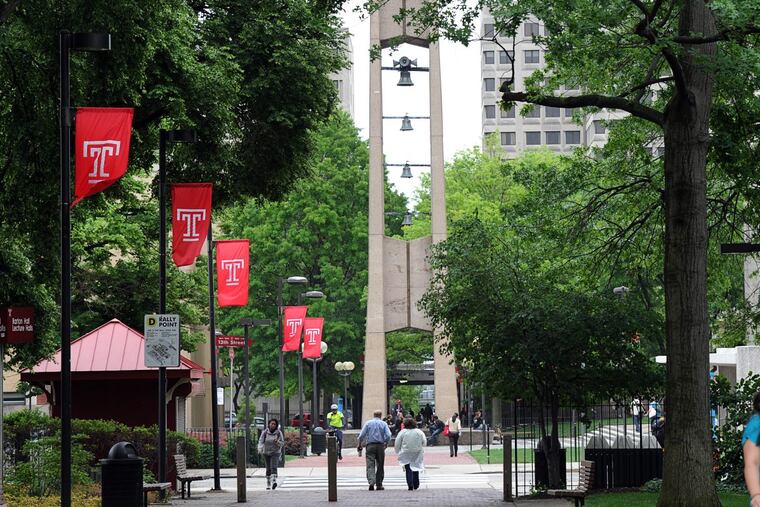More Philly campuses need collegiate recovery programs | Opinion
Collegiate recovery programs — like this one at Ohio State University — have become increasingly common across the country.

In the last few weeks, I’ve received emails from three people looking for information on collegiate recovery resources at Temple. One was the parent of a prospective student, another was a prospective student, and the third was a current student in recovery. Everyone was interested in learning about recovery housing and recovery support options on campus.
I haven’t responded because I don’t know what to tell them.
As the person whose name is listed as the faculty advisor for Temple’s questionably disbanded student-run recovery group, every month or so, I hear from parents, students, and sometimes treatment centers looking for similar information. I also get messages from the loved ones of students who have died of overdoses. Over the summer, I received a heart-wrenching email from Temple mom Julia DyReyes, who recently wrote about her son Julian’s overdose death in The Inquirer.
To clarify, I am not employed by Temple to help students in recovery navigate their time here. Instead, I am a non-tenure track journalism professor with a full teaching load who has volunteered to help students in recovery organize and advocate for resources. Unfortunately, I’ve struggled to maintain contact with Temple’s student recovery group due to both my limited bandwidth and the high student turnover.
Temple’s student recovery group, which was formed in 2017 by former graduate student Bob Lamb, perhaps bears a misleading name: the Temple Collegiate Recovery Program. I believe this name reflects what Bob and others before him were hoping to accomplish, but were unable for a variety of reasons. As of now, the group is loosely organized.
I believe Temple is worse off for not having a formalized collegiate recovery program — and the emails in my inbox only bolster my opinion.
However, after talking with other Philly-area collegiate recovery advocates, it’s clear that this is not just a Temple problem.
Collegiate recovery programs — like this one at Ohio State University — have become increasingly common across the country. Today, there are approximately 140 schools nationwide that are registered with the Association of Recovery in Higher Education.
However, while the programs listed on the ARHE website do represent a push for recovery resources at those universities, the ARHE designation is admittedly an unreliable barometer. It’s a paid, cheap listing, and therefore, some of the schools listed offer significantly more robust support services than others. For example, Penn State and Rutgers have paid staff and recovery housing, while West Chester has just a student-run recovery group (like Temple).
According to Robert Ashford, a recovery scientist at the University of the Sciences Substance Use Disorders Institute, a fully formed collegiate recovery program should have paid non-student staff, designated space, dedicated programming, and official university sanction. While optional, it’s also nice when schools offer recovery housing, scholarships, and special considerations for student members, such as early registration.
In Philadelphia, only three schools meet these basic collegiate recovery program standards: the Community College of Philadelphia, St. Joe’s, and Drexel, which through its partnership with The Haven uses a private/public model. Therefore, Temple — alongside Penn, University of the Sciences, Jefferson, and La Salle — don’t have collegiate recovery programs. In a city that experienced 1,116 overdose deaths in 2018, it’s time for faculty, staff, students, and parents to band together and tell university administrators that this is unacceptable.
Stakeholders across Philly-area universities should launch a standing citywide task force to support each other in our collegiate recovery and harm reduction efforts.
Together, we can and should set the bar higher for the way our colleges support students in crisis. Many of us are tired of students dying preventable deaths while the solutions are stuck somewhere in the system.
Jillian Bauer-Reese is an assistant professor of journalism at Temple University and the editor of Kensington Voice. She is also a person in long-term recovery.